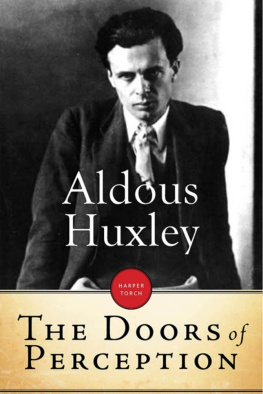Oldos Haksli - Science, Liberty And Peace
Here you can read online Oldos Haksli - Science, Liberty And Peace full text of the book (entire story) in english for free. Download pdf and epub, get meaning, cover and reviews about this ebook. year: 2015, publisher: epubBooks Classics, genre: Science. Description of the work, (preface) as well as reviews are available. Best literature library LitArk.com created for fans of good reading and offers a wide selection of genres:
Romance novel
Science fiction
Adventure
Detective
Science
History
Home and family
Prose
Art
Politics
Computer
Non-fiction
Religion
Business
Children
Humor
Choose a favorite category and find really read worthwhile books. Enjoy immersion in the world of imagination, feel the emotions of the characters or learn something new for yourself, make an fascinating discovery.

- Book:Science, Liberty And Peace
- Author:
- Publisher:epubBooks Classics
- Genre:
- Year:2015
- Rating:5 / 5
- Favourites:Add to favourites
- Your mark:
- 100
- 1
- 2
- 3
- 4
- 5
Science, Liberty And Peace: summary, description and annotation
We offer to read an annotation, description, summary or preface (depends on what the author of the book "Science, Liberty And Peace" wrote himself). If you haven't found the necessary information about the book — write in the comments, we will try to find it.
Science, Liberty And Peace — read online for free the complete book (whole text) full work
Below is the text of the book, divided by pages. System saving the place of the last page read, allows you to conveniently read the book "Science, Liberty And Peace" online for free, without having to search again every time where you left off. Put a bookmark, and you can go to the page where you finished reading at any time.
Font size:
Interval:
Bookmark:
Science, Liberty And Peace
Aldous Huxley
1
IF THE ARRANGEMENT of society is bad (as ours is), and a small number of people have power over the majority and oppress it, every victory over Nature will inevitably serve only to increase that power and that oppression. This is what is actually happening.
It is nearly half a century since Tolstoy wrote these words, and what was happening then has gone on happening ever since. Science and technology have made notable advances in the intervening yearsand so has the centralization of political and economic power, so have oligarchy and despotism. It need hardly be added that science is not the only causative factor involved in this process. No social evil can possibly have only one cause. Hence the difficulty, in any given case, of finding a complete cure. All that is being maintained here is that progressive science is one of the causative factors involved in the progressive decline of liberty and the progressive centralization of power, which have occurred during the twentieth century.
Applied science touches the lives of individuals and societies at many different points and in a great variety of contexts, and therefore the ways in which it has increased the power of the few over the majority are correspondingly many and various. In the paragraphs that follow I shall enumerate the more obviously significant of these ways, shall indicate how and by what means applied science has contributed hitherto toward the centralization of power in the hands of a small ruling minority, and also how and by what means such tendencies may be resisted and ultimately, perhaps, reversed.
1. In the course of the past two or three generations science and technology have equipped the political bosses who control the various national states with unprecedentedly efficient instruments of coercion. The tank, the flamethrower and the bomberto mention but a few of these instrumentshave made nonsense of the old techniques of popular revolt. At the same time the recent revolutionary improvements in the means of transport and communications have vastly strengthened the hands of the police. In his own peculiar way, Fouch was a man of firstrate abilities; but compared with the secret police force at the disposal of a modern dictatorship or even of a modern democracy, the instrument of oppression, which he was able to forge for Napoleon, was an absurdly clumsy piece of machinery. In the past, personal and political liberty depended to a considerable extent upon governmental inefficiency. The spirit of tyranny was always more than willing; but its organization and material equipment were generally weak. Progressive science and technology have changed all this completely. Today, if the central executive wishes to act oppressively, it finds an almost miraculously efficient machine of coercion standing ready to be set in motion. Thanks to the genius and cooperative industry of highly trained physicists, chemists, metallurgists and mechanical inventors, tyrants are able to dragoon larger numbers of people more effectively, and strategists can kill and destroy more indiscriminately and at greater distances, than ever before. On many fronts nature has been conquered; but, as Tolstoy foresaw, man and his liberties have sustained a succession of defeats.
Overwhelming scientific and technological superiority cannot be resisted on their own plane. In 1848 the sporting gun was a match for the muskets of the soldiery, and a barricade made of overturned carts, sandbags and paving stones was a sufficient protection against cavalry and muzzleloading cannon. After a century of scientific and technological progress no weapons available to the masses of the people can compete with those in the arsenals controlled by the ruling minority. Consequently, if any resistance is to be offered by the many to the few, it must be offered in a field in which technological superiority does not count. In countries where democratic institutions exist and the executive is prepared to abide by the rules of the democratic game, the many can protect themselves against the ruling few by using their right to vote, to strike, to organize pressure groups, to petition the legislature, to hold meetings and conduct press campaigns in favour of reform. But where there are no democratic institutions, or where a hitherto democratic government declines any longer to abide by the rules of the game, a majority which feels itself oppressed may be driven to resort to direct action. But since science and technology, in conquering nature have thereby enormously increased the military and police power of the ruling few, this direct action cannot hope for a successful outcome, if it is violent; for in any armed conflict, the side which has the tanks, planes and flamethrowers cannot fail to defeat the side which is armed at the very best only with small arms and hand grenades.
Is there any way out of the unfavourable political situation in which, thanks to applied science, the masses now find themselves? So far only one hopeful issue has been discovered. In South Africa and, later, in India, Gandhi and his followers were confronted by an oppressive government armed with overwhelming military might. Gandhi, who is not only an idealist and a man of principle, but also an intensely practical politician, attempted to cope with this seemingly desperate situation by organizing a nonviolent form of direct action, which he called satyagraha. For a full account of the methods and results of satyagraha the reader is referred to War without Violence by Krishnalal Shridharani (New York, 1939). Here it is only necessary to state that the method achieved a number of striking successes against odds which, from a military point of view, were overwhelmingly great. To those who think that the record of Gandhis achievements is irrelevant to the historical and psychological situation of the industrial West, Mr. Shridharani makes the following answer:
My contact with the Western world has led me to think that, contrary to popular belief, satyagraha, once consciously and deliberately adopted, has more fertile fields in which to grow and flourish in the West than in the Orient. Like war, satyagraha demands public spirit, selfsacrifice, organization and discipline for its successful operation, and I have found these qualities displayed in Western communities more than in my own. Perhaps the best craftsmen in the art of violence may still be the most effective wielders of nonviolent direct action. It is but a question, in the words of William James, of opinionmaking men seizing historic opportunities.
It is often argued that satyagraha cannot work against an organization whose leaders are prepared to exploit their military superiority without qualm or scruple. And of course this may very well be the case. No more than any other form of political action, violent or otherwise, can satyagraha guarantee success. But even though, against an entirely ruthless and fanatical opponent, noncooperation and what Thoreau called civil disobedience, coupled with a disciplined willingness to accept and even to court sacrificial suffering, may prove unavailing, the resulting situation could not be, materially, any worse than it would have been if the intolerable oppression had been passively accepted or else resisted unavailingly by force; while, psychologically and morally, it would in all probability be very much betterbetter for those participating in the satyagraha and better in the eyes of spectators and of those who merely heard of the achievement at second hand.
In the years ahead it seems possible that satyagraha may take root in the Westnot primarily as the result of any change of heart, but simply because it provides the masses, especially in the conquered countries, with their only practicable form of political action. The Germans of the Ruhr and the Palatinate resorted to
Font size:
Interval:
Bookmark:
Similar books «Science, Liberty And Peace»
Look at similar books to Science, Liberty And Peace. We have selected literature similar in name and meaning in the hope of providing readers with more options to find new, interesting, not yet read works.
Discussion, reviews of the book Science, Liberty And Peace and just readers' own opinions. Leave your comments, write what you think about the work, its meaning or the main characters. Specify what exactly you liked and what you didn't like, and why you think so.






